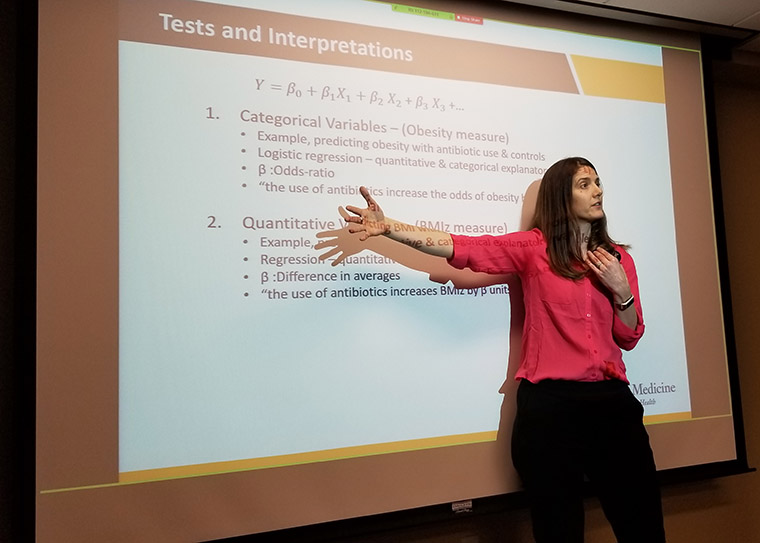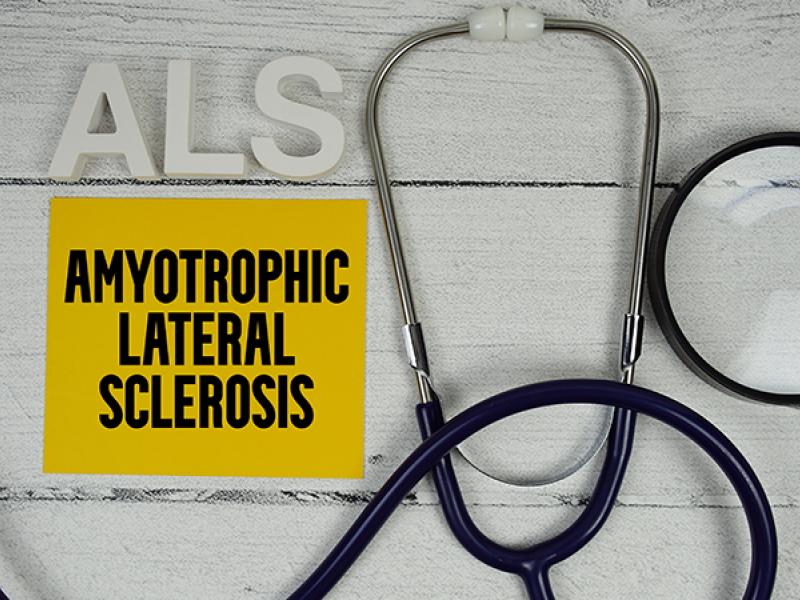The Pediatrics Research Division offers three distinct methods of statistical assistance to all MU School of Medicine researchers: traditional hourly consulting, research collaboration and engaged learning.
If you are not sure which category your project fits into, our staff will work with you to decide the best path.
Our statistical support provides statistical support as a partner in research to the Department of Pediatrics and School of Medicine at the University of Missouri. Whether it be collaboration on grants, manuscripts, education or data analysis, we are prepared to assist you in your research activities.
Services Provided
- Grant proposal development
- Experimental design
- Sample size selection
- Data management
- Randomized clinical trials
- Statistical analysis, including (but not limited to):
- Linear models
- Nonparametric statistics
- Logistic regression
- Longitudinal studies
- Multivariate analysis
- Survival analysis
Statistics and Data Lecture Series
Monthly presentations - Women’s Hospital South Pavilion Conference Center 4-5 p.m.

Past Lectures:
February 20, 2020 - Prospective research design: What can go wrong?
This lecture’s objective is to discuss the importance of statistical analysis and design before research happens, and what information you need to bring to your statistician for a sample-size/power analysis. Information will be provided on expanding research through networked medical centers, such as the Greater Plains Collaborative (GPC).
January 16, 2020 - Retrospective research design: What can go wrong with data collection?
The goal of this lecture is to illustrate the link between retrospective research design and choice of statistical tests. The lecture will review the concepts of independence of observations and confounding variables, as well as examine potential research datasets such as HealthFacts. Examples from current CHRI research will highlight the importance of determining and specifying the study population.
December 19, 2019 – Storytelling with statistics: The many ways of interpretation
The goal of this talk is to review various methods used by statisticians to present findings: confidence intervals, p-values and effect-sizes. The presentation will provide a discussion on the appropriate use of each method as well as the importance of distinguishing between statistical and clinical significance.
November 21, 2019 – What is your hypothesis? The first question your statistician will ask and how to answer it
The goal of this talk is to help researchers understand how hypotheses determine the choice of statistical test, and how to talk to their statistician about the appropriate hypotheses for their research questions.
October 17, 2019 - What am I measuring? How to improve your data collection to help your statistician
This lecture’s objective is to review the main types of data, and draw a link between data types and the researchers’ choice of statistical test. The presentation will provide a discussion of advantages and disadvantages to each of the choices, and how to talk with your statistician about them.
September 19, 2019 - How big is big enough? Talking with your statistician about data and sample size.
The goal of this talk is to help researchers understand the trade-offs that are made in determining sample size, and how to talk to their statistician about their research and data. Examples from recent CHRI research will be provided to put these trade-offs into the context of medical research questions.





